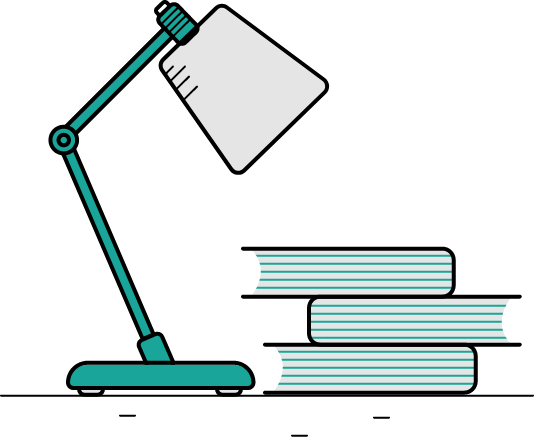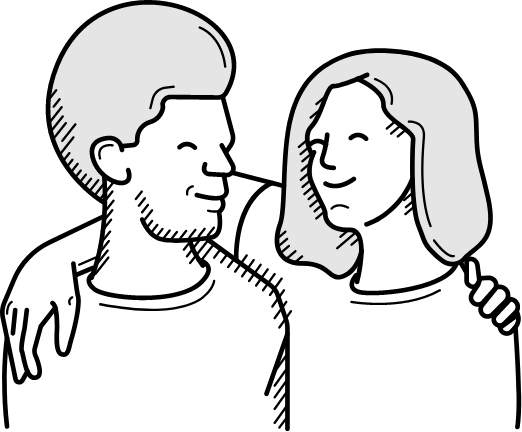Introduction
Liam Joined as a media volunteer in 2017 and has since done the speaker training and community champion training.
He challenges the public’s perceptions of mental health and schizophrenia through conversations in the media, at events and in person, through See Me’s Time to Talk Day Campaign, to get more people talking about mental health.
He has created a choir to bring our community together and show that regardless of who we are, regardless of our mental health, we all have a voice!
I first became involved with See Me in December 2017, I did my media training. The reason I done that was because I was speaking to my psychologist and I told her I’d like to help other people and speak out about the life I’d had, because I’d been stigmatised and discriminated against my whole life due to my mental health.
I’d just lost my job at that point due to that, and I thought I need to speak out. How can I do this? When I went to see her, she gave me a bit of paper with the See Me address on it. I went and had a look and saw the get involved part.
I seen the media volunteer, read through the description and thought, that’s a good way for me to speak out and get my message out there, to change people’s perceptions of my condition, and it shouldn't be stigmatised or discriminated against just because I’ve got a condition that I can't control.
We should still be treated the same. The same value, the same respect as any other person gets. There’s no difference between us, whether you've got a physical condition or a mental health condition, there’s no difference.
There should be no difference at all between the way people get treated, from somebody being in a wheelchair to somebody with schizophrenia, if it’s somebody with bipolar disorder, there should be no difference with somebody without a condition. Everybody is equal. We all have one voice, we should be treated with respect.
I want people to see that no matter what, if somebody’s got a mental health condition, that we’re all equal, we’re all the same
Feeling Empowered to Talk
When people ask me, what are you doing now, Liam? You still working? I say no. And they’ll ask me why, I say, well, I volunteer with See Me because I’ve got schizophrenia.
I feel empowered now that I can actually say that and I can say to people ‘I see you're uncomfortable with that, let me explain to you exactly what this condition is’.
And when you explain it, exactly what it is, they see it in a different light. One of the first things I did with See Me was share my story for Time to Talk Day. That’s a campaign all across the UK and Ireland, which See Me lead in Scotland, aiming to get people talking about mental health.
Sharing my story in the media that day, I found courage within myself that I never knew or realised that I had.
And that’s the God’s honest truth. I found courage that I never realised was actually inside me, because I was really nervous that day, I was really bricking it.
But the reaction after that was great. People just come up to me in the street now and say, are you still doing your work with See Me, Liam? Are you still trying to help others, are you still helping yourself, what you've been up to? Can I join you on Facebook so I can see an update? So it’s empowered me.
Not Judging Myself
Sharing my story made me feel so much better about my own inner self. It took away all the years of shame that I felt. I know I shouldn't have felt ashamed because it’s not my fault I’ve got a mental health condition, but I did. You kind of blame yourself. You think it’s your own fault. So it made me realise that it’s not my fault. And the amount of people that actually spoke to me afterwards that said, I’ve suffered from depression or I’ve got a family member who’s been diagnosed with bipolar, or just things like that.
It made me feel really empowered. It made me feel really happy in my own skin again. It gave me that voice to speak out and realise I'm a human being, I can say this without fear, without the shame, without embarrassment, and that can make a difference.
So all these things that I’ve changed, I would never have changed them if I hadn't first walked through that door. I’d still be smoking, I would still be eating badly. My life wouldn't have changed at all. Whether I’d still be here, I don't know. That’s a question I can’t answer, because I don't know where my mental health was going, where my life was going.
Changing other people's minds
It’s been great, I’ve got a whole new friend network now.
When you've got a mental health condition, sometimes you can be isolated, because, one, you don't think you fit in, two, you're too scared to try and make friendships, because you’ve always got to have that conversation, that I’ve got a condition. And sometimes when you tell people that, that can be the last time you hear from them.
That’s happened to me plenty of times, plenty of occasions it’s happened. On dates, you maybe go on three or four dates with somebody, but you’ve got to have that conversation with them. So you sit down and tell them, and that’s the last time you hear from them, because their whole perception of you is then totally different.
But to actually change somebody’s perception for the better and make them realise that you're not what they thought you were. You are just an individual human being and should be treated with the same respect and courtesy as others, it’s great that I can do that now.
It’s brought me out of myself, doing the media work, doing the speaking work, being the community champion. Being a community champion, to me, it gave me that sense of purpose. And finally I thought, I can do something.
Using music to make a difference
See Me gave me a voice to go and speak out, I’ve used that voice to go and speak out. I’ve done the media work, I’ve done talks and I’ve started a choir. When I saw that choir in front of me I could say I’ve achieved something.
I started it just after I’d done community champion training. I was sitting on my bed, and I was on YouTube with my headphones on. And I was listening to music, and this choir popped up. It was an armed forces widows’ choir. I looked at it and I thought, why is there not a mental health choir?
I thought a mental health choir would get out there, would get in people’s faces, spread the message, let people see we’ve all got one voice, we’re all equal.
The choir empowers people to realise they don’t have to feel isolated. We get out and show we are all people, we are all different and can’t be judged because of our mental health.
We performed at the Mental Health Foundation’s 70th Birthday, which was amazing. It has also helped me massively because I made friends with people in the same boat. At rehearsal we have a bit where we can sit and talk about mental health if we want to, there are people who have been trained in mental health first aid who can help. It’s making a difference.
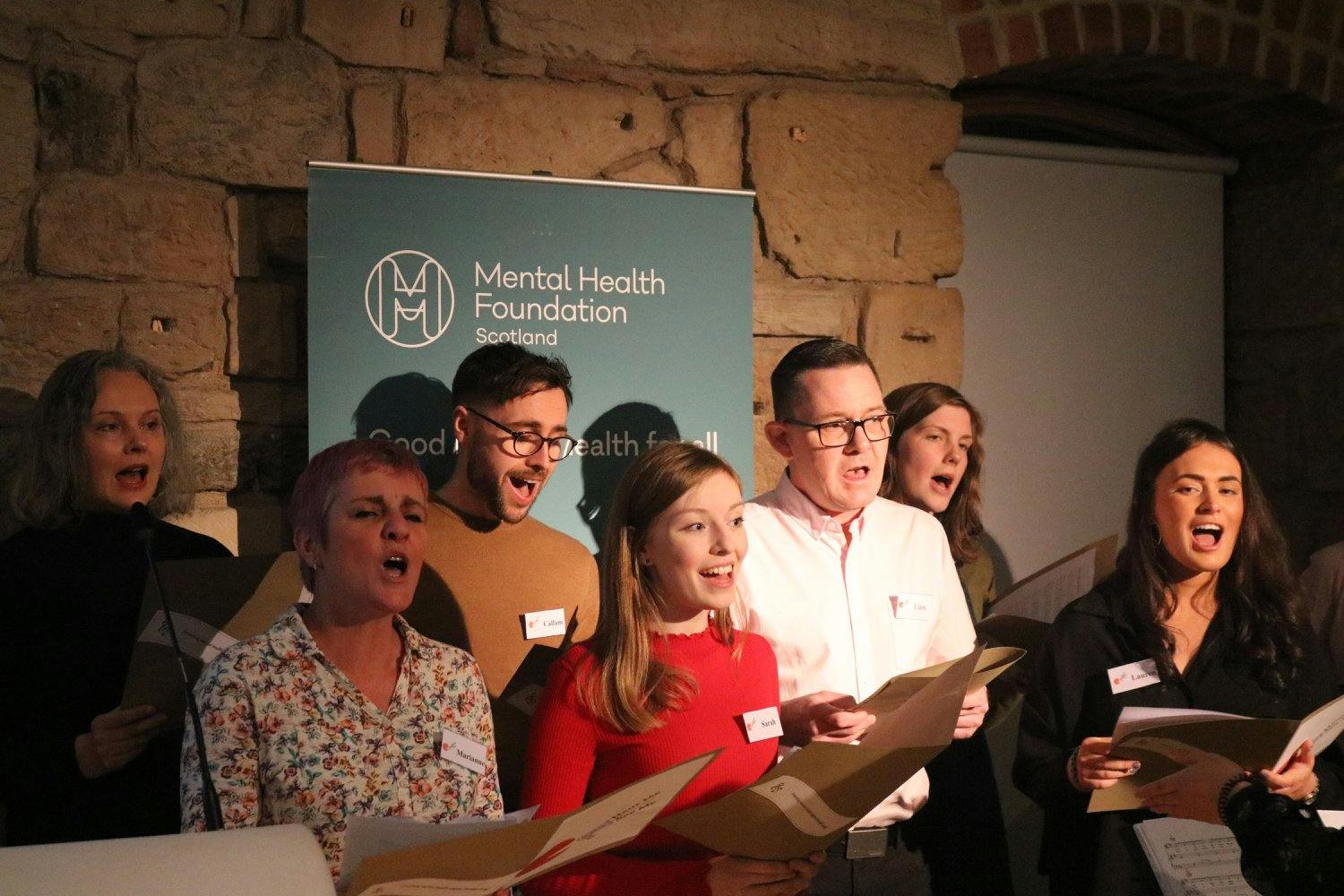
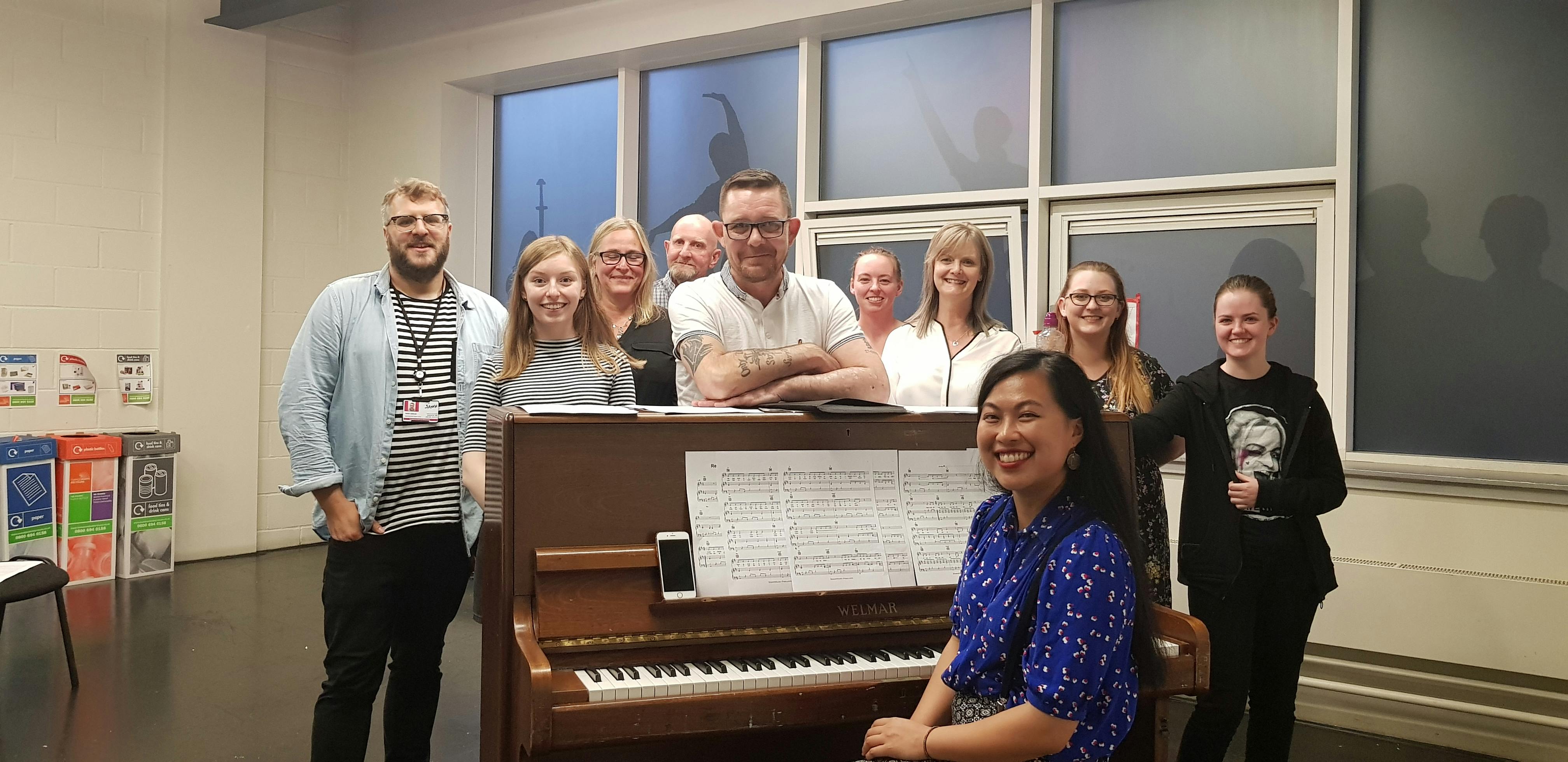
What is the message going forward?
Stigma and discrimination will not be tolerated. It should not be tolerated in society, whether it be in a workplace, whether it’s Health and Social Care, whether it’s in schools and the community, anywhere. It should not exist in any way, shape or form.
Everybody’s a human being, everybody’s their own individual person, and everybody’s got their own issues. So why discriminate against somebody or stigmatise them? Why don't everybody just get on with it and just live happily together?
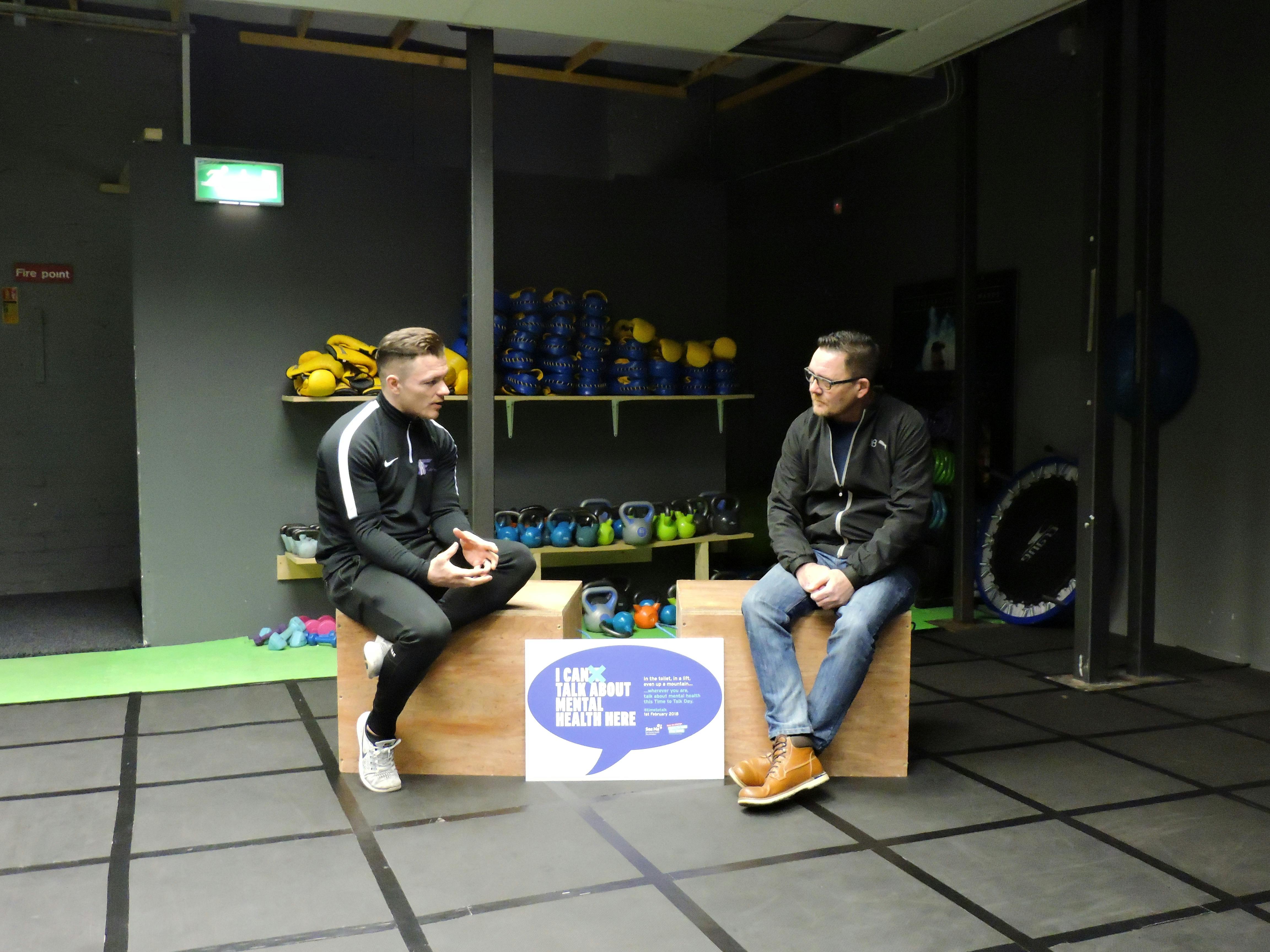
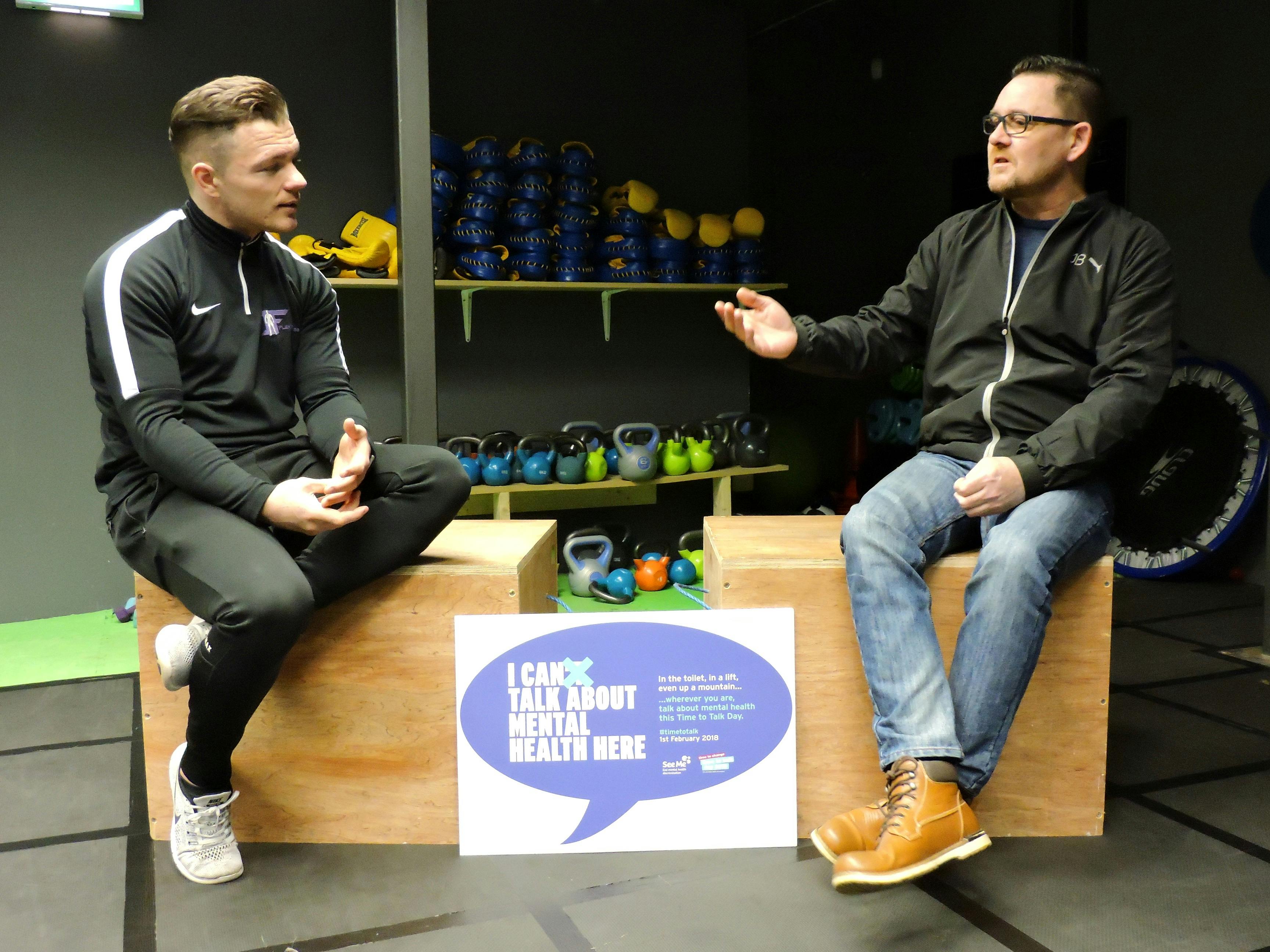
Get Involved with See Me
There are so many ways to get involved and engage with the movement, from becoming a supporter or volunteer to partnering with us to growing the movement in your organisation.
